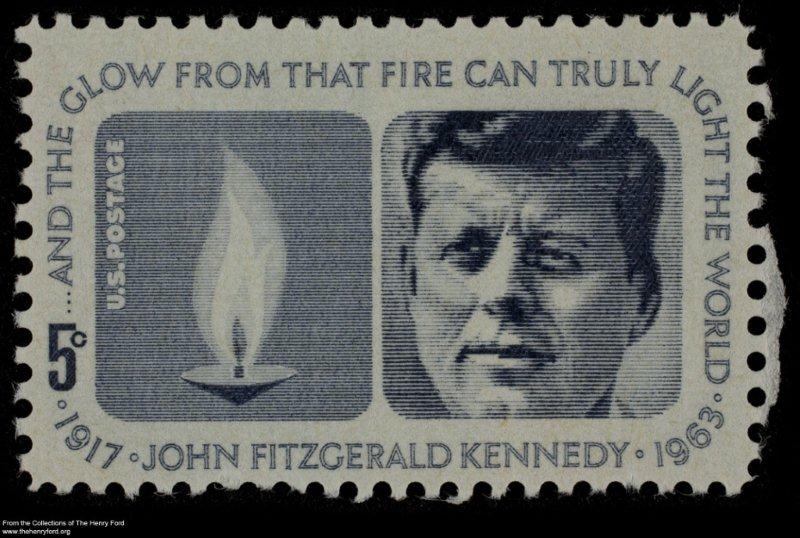“Ask not what your country can do for you; ask what you can do for your country.”
These are the hallowed words of President John F. Kennedy’s inaugural speech that still ring within the heart of America today and will never go unnoticed as long as our mighty nation stands and the spirit of our people is kept aflame. On November 22, 2013, we Americans will bow our heads in somber remembrance of a leader whose impact, 50 years ago to the day, was cut short by the evils of society, the very thing in which Kennedy himself spoke against in his inaugural speech in 1961. But I’m not writing to recite what happened in the back of the Lincoln convertible on that heart wrenching Friday afternoon, because most know the story. I want to take Kennedy and show to people who he was, what he thought, and how this truly American man had the mind to connect the past and the present to form a bright future for all mankind.
JFK was a man of dignity in the face of the world’s power-driven stage. He was one of valor during times of imminent trouble. He served his country when it had been attacked in the Second World War. He was a father to the American people, and not to mention his own family. He served as a light in the darkness of communism and the menacing nuclear threat. He was the innovator determined to set foot on the moon. All these things amounted to a great man and an even bolder national figure, who not only focused on his own generation and administration, but the future of the American and human race. His legacy is one that must never be forgotten, and it starts with the citizens themselves. Some people still ask what the etchings of the past have to do with the framework of our future, but the two have a direct correlation. Yes, the messages delivered by Kennedy in his inaugural speech are about different topics and of a different time, certainly. But look at the subliminal meaning hiding just below the surface of dusty forgetfulness.
“Let both sides explore what problems unite us, instead of belaboring those problems which divide us,” JFK said clearly in his inaugural address. His words will never spoil or turn yellow with age; they apply themselves naturally to time to come and the people who will follow us. Opponents must learn to put ‘resolve before rifles’; place resolution at the forefront of their arsenal.
Kennedy’s words, “Let both sides seek to invoke the wonders of science, instead of its terrors,” can be backed with his belief of extraterrestrial conquering: landing on the moon itself, a previously daunting, if not unheard of task, which we accomplished. This is antithesis to his crucial involvement in the frightening Cuban Missile Crisis. The advancements of atomic science had put Russia and the U.S. in a position of great accountability and placed the fate of another world war on their shoulders. Without Kennedy, the world might have been a smoldering pile of radioactive rubble by the late 60s. His spoken principle should be carried through today’s age, especially with more advanced technology than ever before.
“Let every nation know, whether it wishes us well or ill, that we shall pay any price, bear any burden, meet any hardship, support any friend, oppose any foe, in order to assure the survival and success of liberty.” These sentiments are hard not to relate to in today’s world of terrorism and violence. They’re strikingly similar to George W. Bush’s words after 9/11; “We [will] go forward to defend freedom and all that is good and just in our world.” The emotions remain the same. The moral rights are still pertinent; the era is the only difference.
This is where I tie back to one of the most famous quotes ever spoken, stated above. We need to be the proponents that thrust our nation forward and “ask what [we] can do for [our] country”, the very land in which we live the life that so many people long for. “We, the people of the United States, in order to form a more perfect union, establish justice, insure domestic tranquility, provide for the common defense, promote the general welfare, and secure the blessings of liberty to ourselves and our posterity,” need to step up to the plate and be our future. President Kennedy says in the end of his speech, “In your hands, my fellow citizens, more than in mine, will rest the final success or failure of our course.”
And so I thought about how to end such a passionate, nationalistic article and a poignant way to remember our lost hero, slain just a half a century ago. And what a better way than highlighting the last sentence from his first Presidential speech:
“With a good conscience our only sure reward, with history the final judge of our deeds, let us go forth to lead the land we love, asking His blessing and His help, but knowing that here on earth God’s work must truly be our own.”


